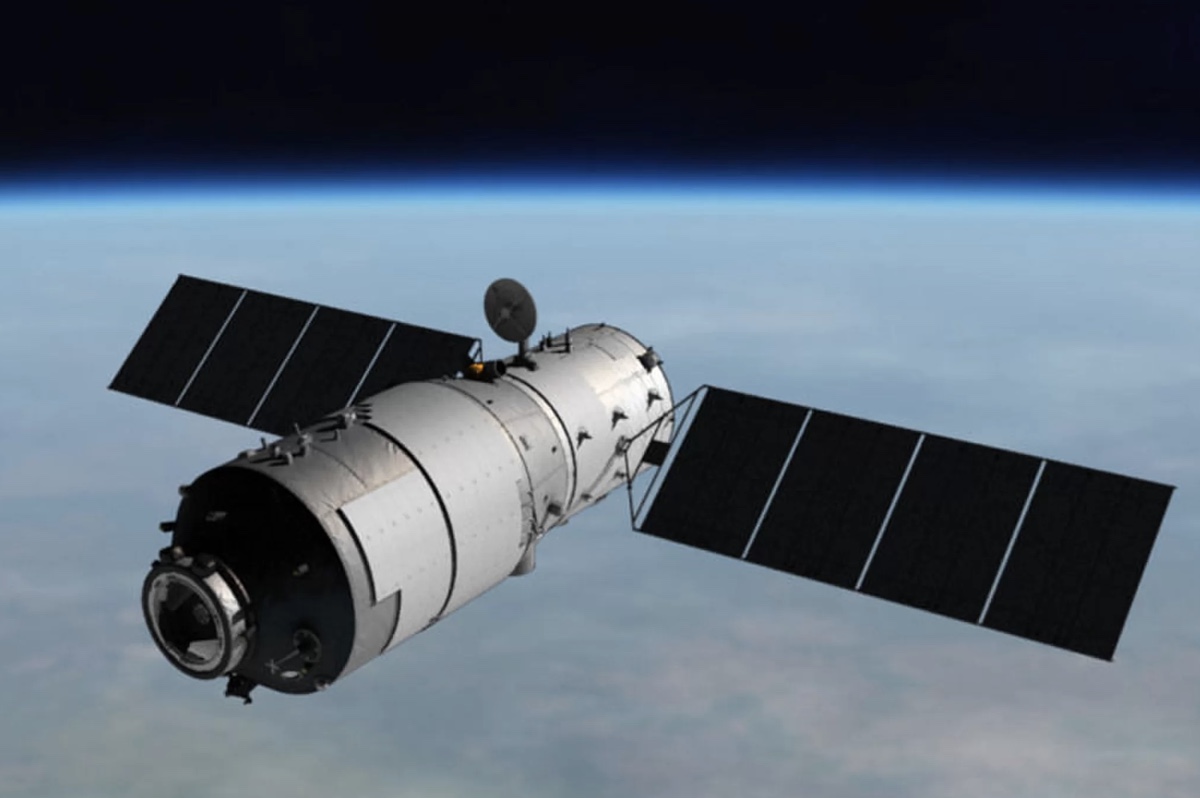What Should You Do If You Find a Piece of China's Crashed Space Station?
China's defunct Tiangong-1 space station is careening through low-Earth orbit right now, and is expected to reenter Earth's atmosphere sometime between March 30and April 2. Most of the 9-ton(8,500 kilograms) space station will probably burn to bits in the atmosphere — but a few thousand chunks of hot, mangled debris are still likely to survive the trip and land on our planet's surface.
Your odds of being conked on the head by any of this debris are low — about one in 292 trillion, or roughly a million times less likely than hitting the Powerball jackpot. Right now, the potential impact site of the space station covers about one-third of the planet, and a huge majority of that zone is water.
However, if by some truly cosmic coincidence you do find a piece of Tiangong-1 in your neighborhood — or if some debris washes up on a shore near you — here's some advice on your best course of action: Don't touch it. [China's Space Station Crash: Everything You Need to Know]
"There are two reasons why you should not approach and touch a piece of space debris," Robert Z. Pearlman, a space historian and editor of collectSPACE.com, told Live Science. "The first is it is a health risk."
Presumably, Pearlman said, the space station is carrying all manner of hazardous materials not safe for human contact, including fuel tanks with noxious fuel inside. "Also, because this vehicle is going to be ripped apart by the process of reentry, whatever does survive to the ground could have very sharp edges," Pearlman added. "It’s not something you want to have your kids run out to touch."
Finders keepers?
The second reason not to rush out and bag a chunk of Tiangong-1 is the galaxy of legal trouble it could land you in.
"According to the Outer Space Treaty of 1967, a country’s spacecraft is their legal property until they say that it’s not their legal property,” Pearlman said. "No matter where it lands — whether it lands in the ocean and sinks to the bottom of the sea, or whether it lands on their own land or some other country’s land — it belongs to that country of origin."

Part of this legal framework is for your protection, Pearlman said; it makes China legally liable for any damage to person or property that their out-of-control space station may cause. (Again, such damage is unlikely to happen.)
Get the Space.com Newsletter
Breaking space news, the latest updates on rocket launches, skywatching events and more!
However, it also means that pocketing a piece of Tiangong-1 is tantamount to theft of government property. Believe it or not, people have gone to jail for this.
"Following the Challenger explosion [in 1986], there was a gentleman in the Coast Guard who kept a piece of debris for 25 years," Pearlman said. "He was the cook onboard the ship working on the investigation. While his fellow sailors were out helping with recovering pieces, he decided to use a bucket to scoop up a tile floating in the water and keep it for himself. He put it away for 25 years and then listed it on eBay as 'the ultimate Christmas gift.'"
When NASA found out, the man was arrested. He was found guilty of theft of government property, and sentenced to two years probation. He got off easy; he could have received a $10,000 fine, 10 years in prison, or a combination of both.
Space debris can become a legally legitimate souvenir, however, once the government of origin officially concludes its investigation. Until then, it's probably best to treat any pieces of Tiangong-1 like what they are: hot, mangled wreckage.
So, what should you do if you find a piece of what you think is space debris? "The best thing to do is to contact your local authorities," Pearlman said. "They will contact the federal authorities and arrange for the proper collection and appropriate return to the Chinese government."
"All that being said," Pearlman jokes, "if a piece of debris lands in my backyard — it's mine, all mine!"
Originally published on Live Science.
Join our Space Forums to keep talking space on the latest missions, night sky and more! And if you have a news tip, correction or comment, let us know at: community@space.com.

Brandon has been a senior writer at Live Science since 2017, and was formerly a staff writer and editor at Reader's Digest magazine. His writing has appeared in The Washington Post, CBS.com, the Richard Dawkins Foundation website and other outlets. He holds a bachelor's degree in creative writing from the University of Arizona, with minors in journalism and media arts. He enjoys writing most about space, geoscience and the mysteries of the universe.










